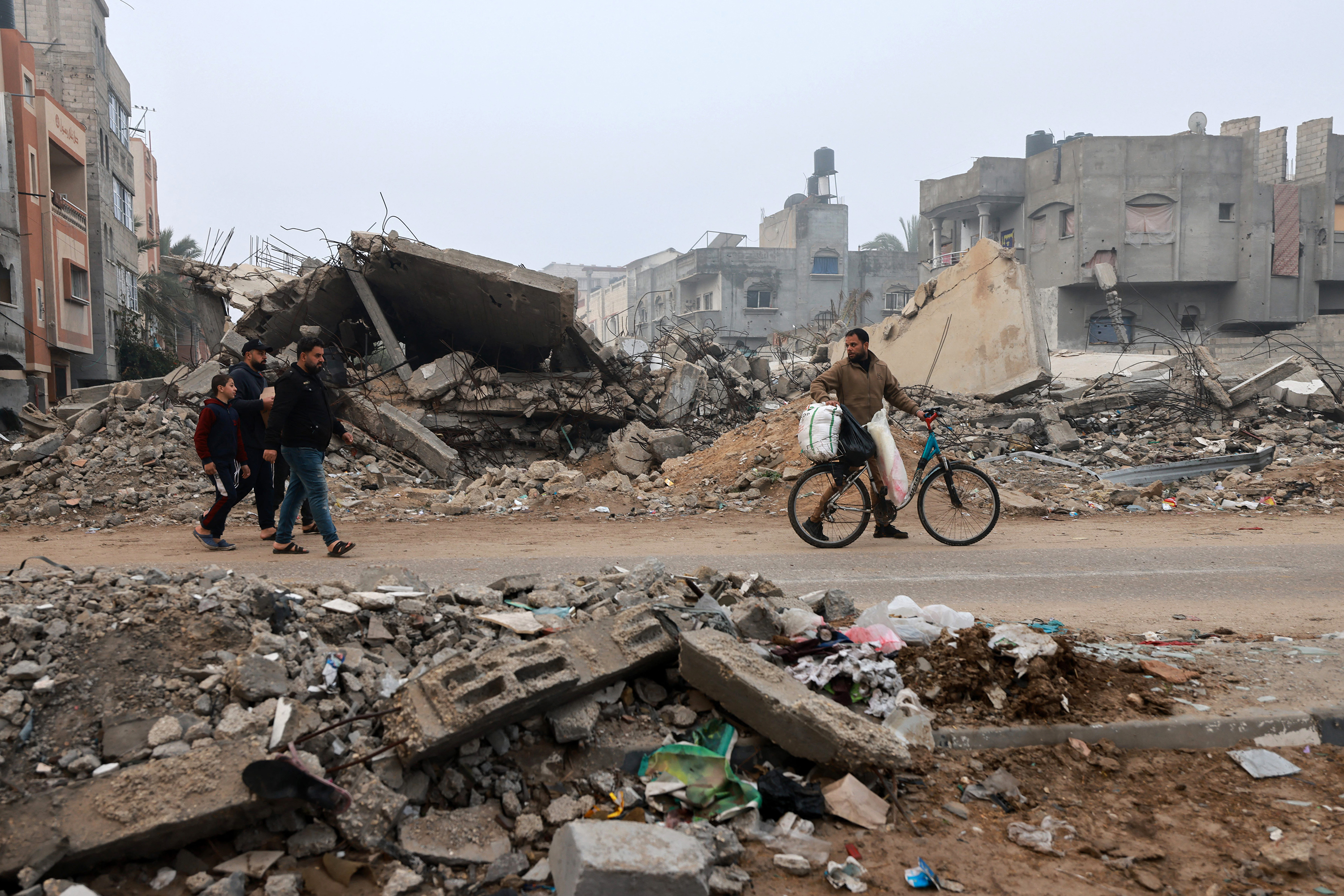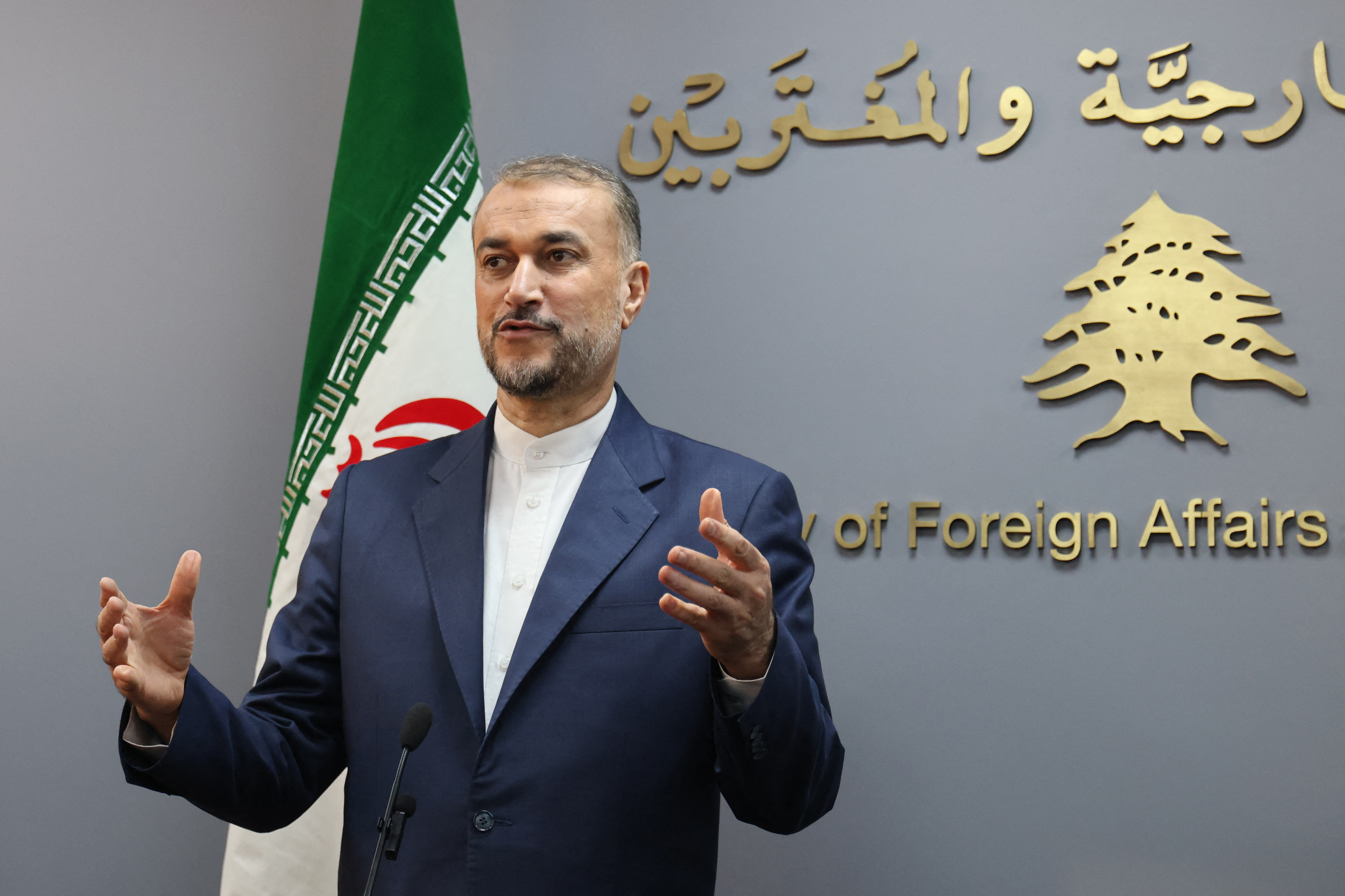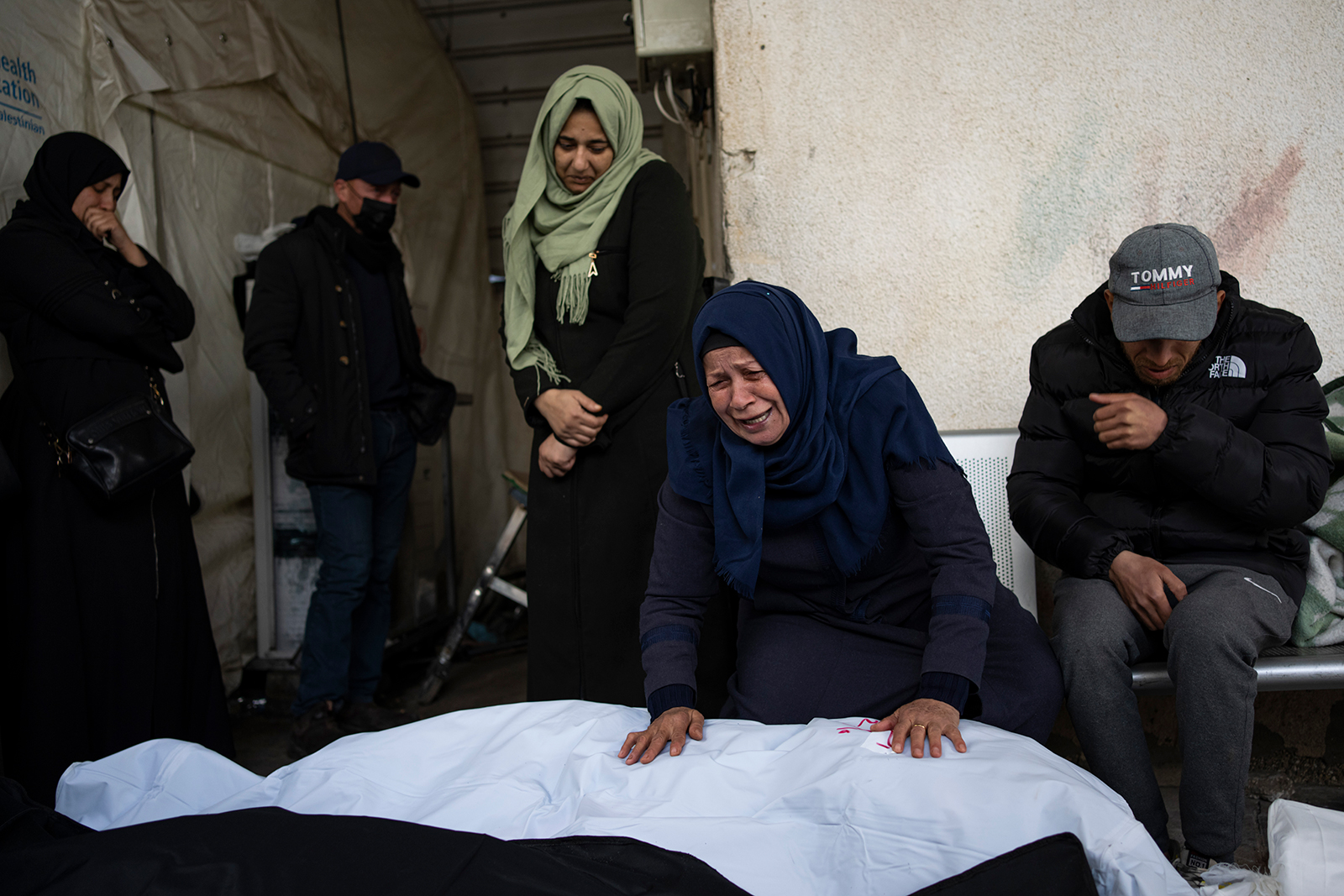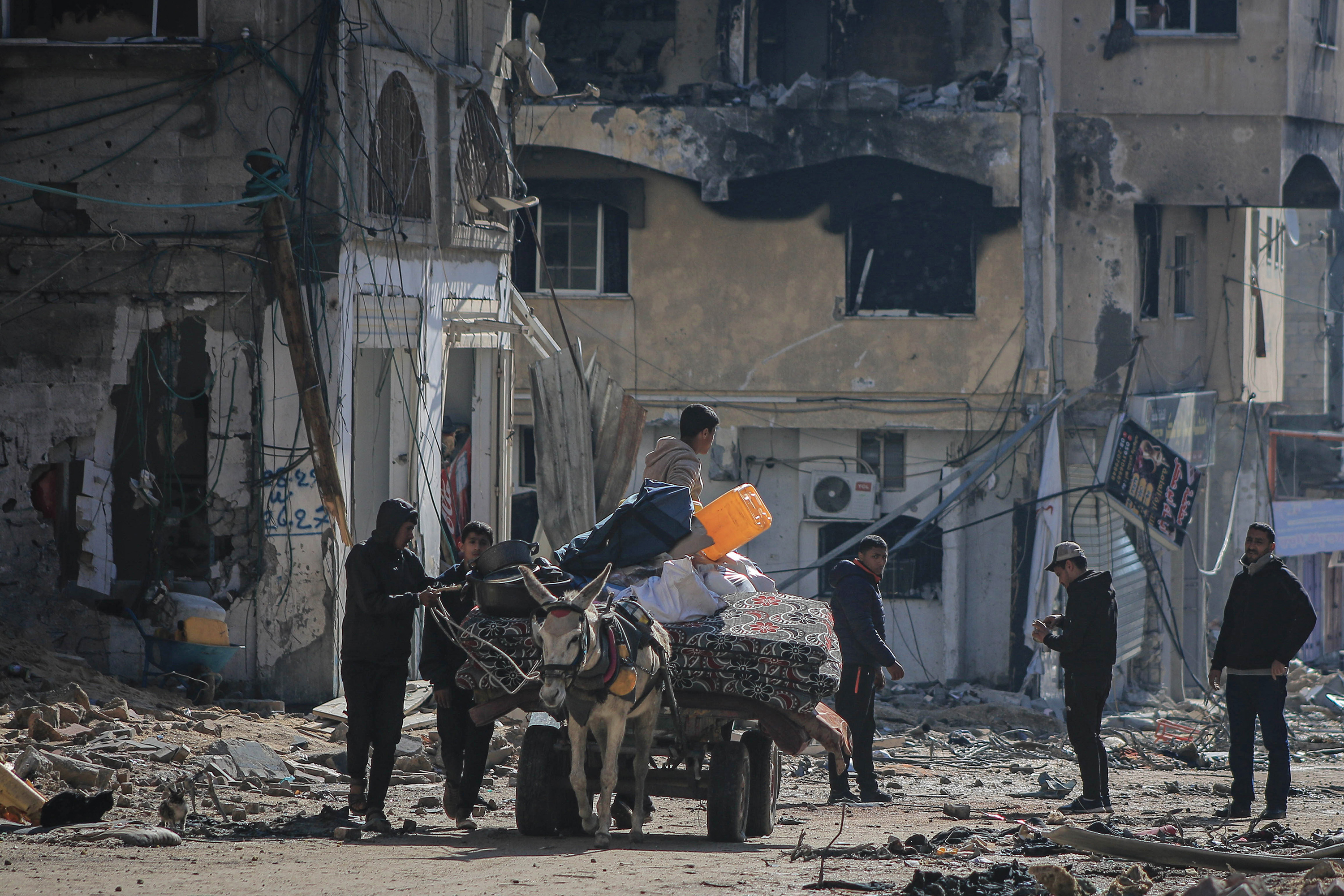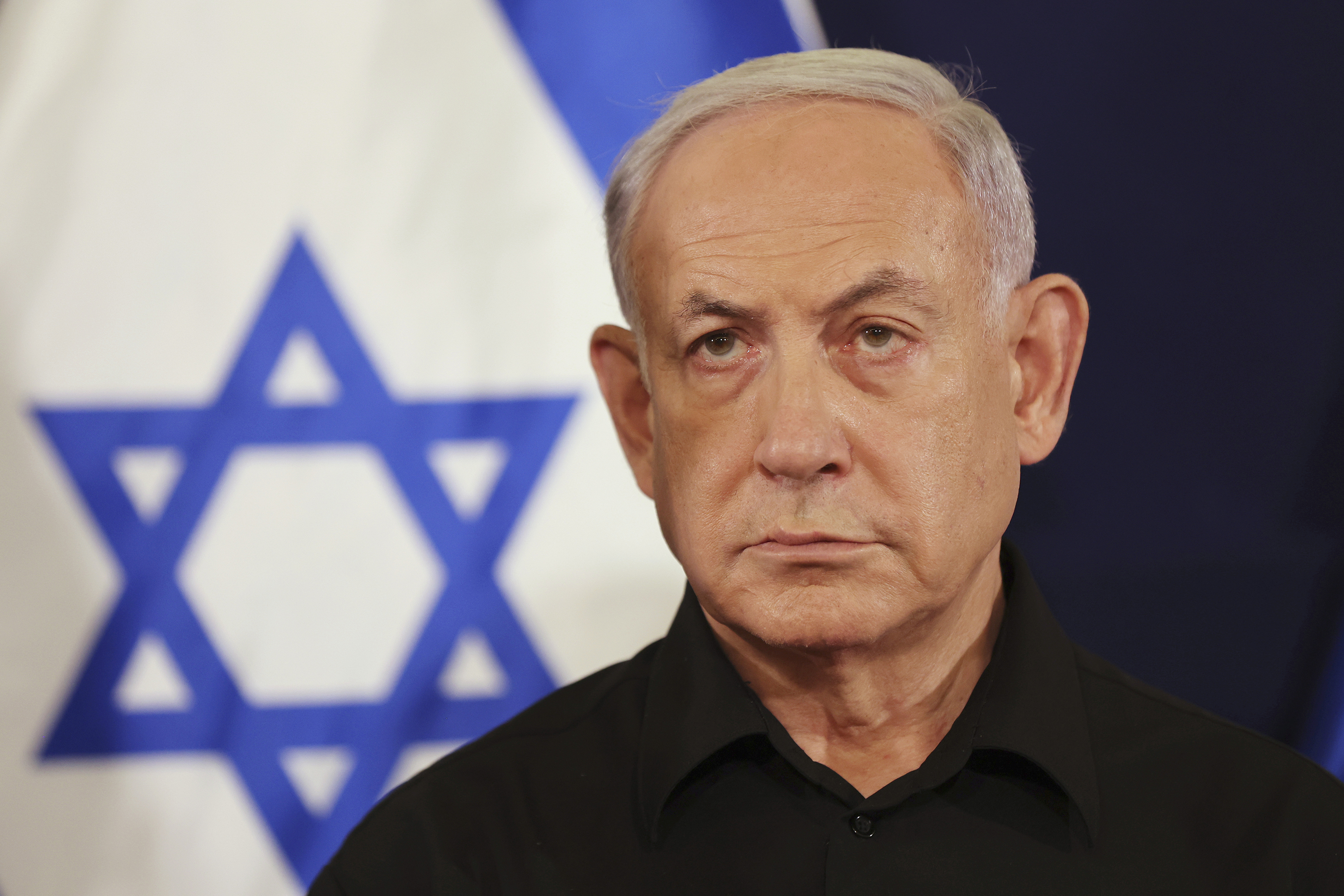Israeli fighter jets struck three Hezbollah military command centers in southern Lebanon, the Israel Defense Forces said Saturday.
Aside from the the command centers, located in the area of Ayta ash Shab and the coastal town of Naqoura, the aircraft struck additional Hezbollah locations in the areas of Khiam, Marwahin and Boustane, the IDF said in a statement.
Israeli artillery, meanwhile, struck three launching sites in southern Lebanon after they were identified as locations targeting the town of Shlomi in northern Israel, according to the IDF.
Remember: Hezbollah is a powerful paramilitary group backed by Iran, which has engaged in increased cross-border skirmishes with Israel since the start of the latest war in Gaza.
More news from this region: The news of fresh Israeli strikes Saturday came as Lebanese state-run media reported a drone strike on a car about 40 miles from the border. Reuters reports that the drone targeted a Palestinian figure linked to Hamas, but that they survived the attack, according to security sources.
It also came as Hezbollah chief Hassan Nasrallah met in Lebanon with Iranian Foreign Minister Hossein Amir-Abdollahian, who called for a political solution to the war in Gaza.
